Everything You Need to Know About Water Heater Replacement Cost in Surprise, AZ
When you're thinking about replacing your water heater, it's important to know how much it will cost. Whether you want an electric or gas water heater, you need to consider the expenses involved in upgrading this important appliance in your home. By doing your homework and learning about the different factors that affect the cost, you can make a smart choice that fits your budget and guarantees a dependable supply of hot water for your household.

When do you need to replace a water heater?
Knowing when to replace your water heater is crucial to ensure you always have a reliable source of hot water in your house. Take into account the following important aspects:
Water heaters generally have a lifespan of 8-12 years. If your water heater is older than this timeframe, it might be a good idea to consider replacing it.
If you notice rust or corrosion on the tank of your water heater, this is a definite sign that it is time to replace it.
If a water heater is leaking, it is important to assess the severity of the leak. In some cases, a simple repair may be enough to fix the problem. However, if the leak is significant or ongoing, it may be necessary to replace the entire unit. It is best to consult with a professional to determine the best course of action.
If you're noticing less hot water or finding yourself running out of hot water sooner than usual, it could be a signal that you should consider getting a new water heater.
Maintaining the performance and longevity of your water heater is crucial for a constant supply of hot water. Instead of waiting for it to break down, it's better to be proactive. Regular maintenance, such as flushing the tank to remove sediment, checking for leaks, and inspecting the heating elements, can significantly extend its lifespan. Moreover, it's important to stay alert and look out for signs that suggest a replacement might be necessary. This includes signs like old age, corrosion, leaks, and insufficient hot water. Addressing these issues early on can prevent them from escalating into major problems.

What affects the cost of replacing a water heater?
The price of getting a new water heater can differ depending on various factors. These factors affect the total cost, so it's important to think about them when planning for a water heater replacement. It's a good idea to talk to an expert for accurate estimates and advice based on your unique circumstances.
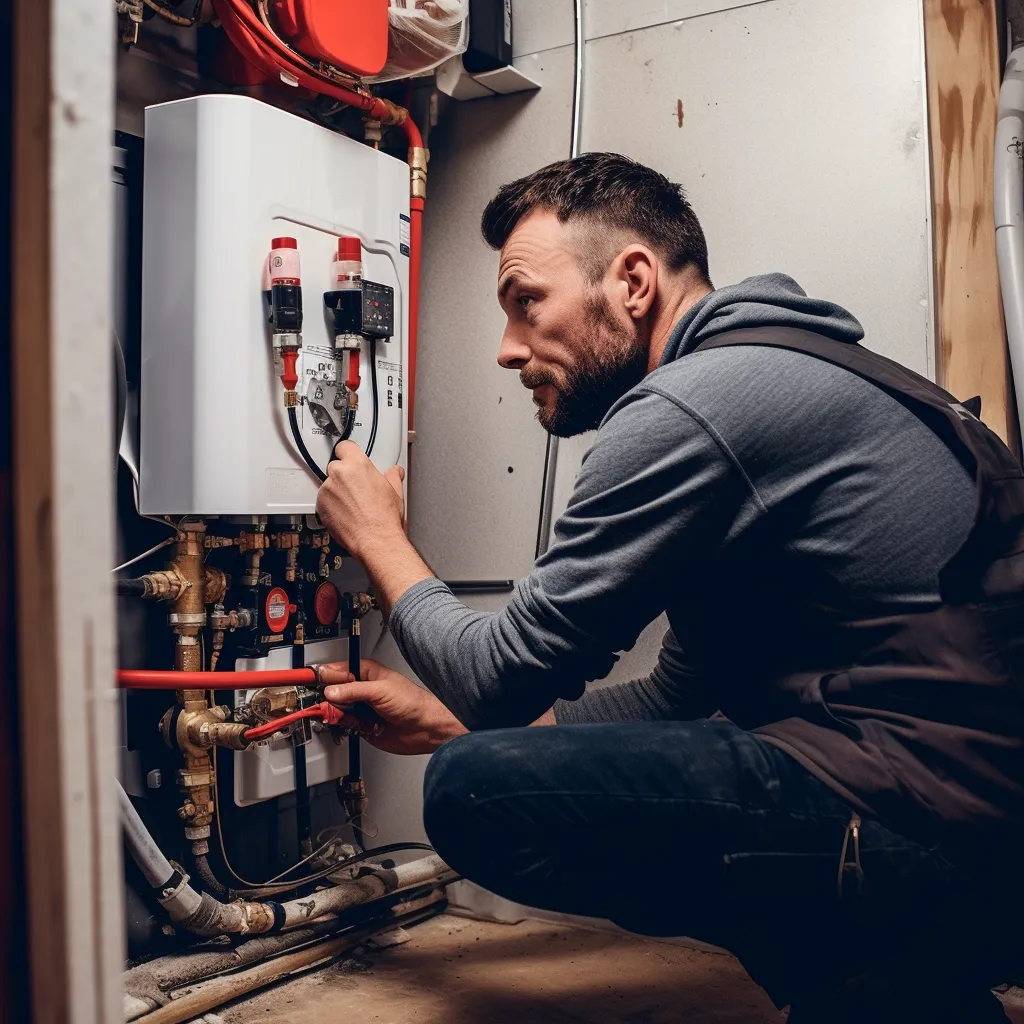
When it comes to water heaters, the cost can differ based on the type you choose. There are two main types: tankless water heaters and traditional tank models. The prices can vary depending on the size and energy efficiency rating of the unit.
The size of a water heater affects its price. Bigger units typically cost more because they have a larger capacity.
Extras such as automatic shutoff valves or pressure relief valves can increase the total cost of a water heater replacement.
Installation costs for water heaters can vary depending on a few factors. These factors include the complexity of the installation project, the need for additional materials, and whether new pipes or venting systems are required.
When it comes to labor costs for water heater installation or repair, it's common for professional plumbers to charge either an hourly rate or a flat fee. These costs can have an impact on the total amount you'll need to spend.

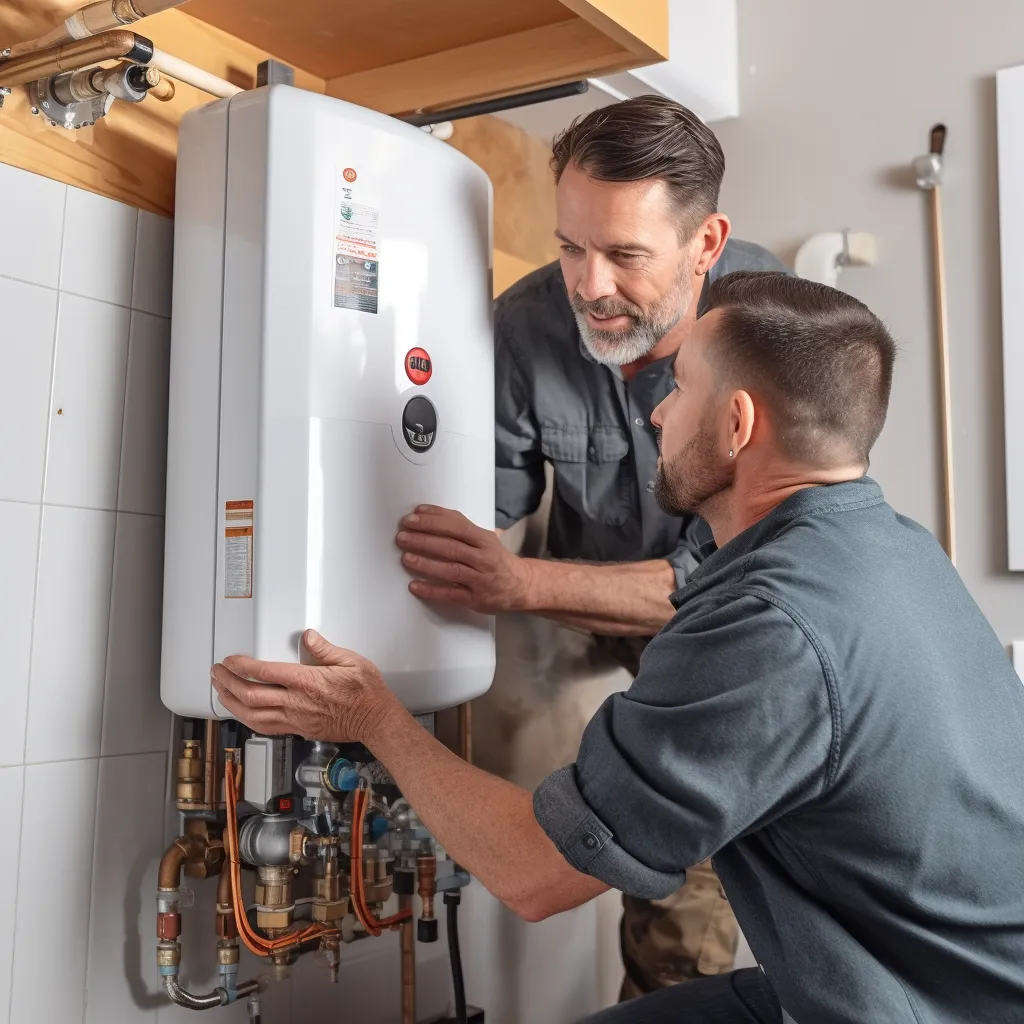
Replacing with energy-efficiency in mind
Choosing an energy-efficient water heater offers major advantages:
Energy-efficient water heater models are designed to use less electricity or gas, which can help to reduce your monthly utility bills. By consuming less energy, these models not only save you money in the short term but also offer long-term cost savings.
These water heaters ensure a steady and pleasant flow of hot water, guaranteeing a reliable and desirable temperature to meet your specific requirements.
Energy-efficient water heaters are designed with top-notch materials and cutting-edge technology, ensuring their durability and reliability for extended periods of use.
Energy-efficient water heaters help in creating a more environmentally friendly atmosphere by reducing the amount of energy consumed and lowering greenhouse gas emissions.

How to calculate the size of the water heater you need for your home
When it comes to finding the right size hot water heater for your needs, it's best to get advice from a professional. They can evaluate your situation and provide personalized suggestions. Several factors influence the size you'll require, such as:
The size of your family affects your hot water needs. If you have a big family, you'll need a bigger water heater to keep up with the demand.
When choosing a water heater, always keep your hot water usage patterns in mind. If you have multiple bathrooms or frequently use hot water for activities like laundry and dishwashing, it is essential to consider a larger tank size to guarantee a sufficient supply.
For those residing in colder climates, it is advisable to choose a bigger tank size. This is to account for the lower temperature of incoming water and guarantee an ample supply of hot water for all your requirements.
When choosing a water heater, it is important to consider the space where it will be installed. Make sure to take into account the available physical space and ensure that the selected size can fit comfortably in the designated area. This will help prevent any issues with installation and ensure that the water heater fits properly in the space provided.


Research the different types of water heaters
When choosing a water heater for your home, you have several options to consider. There are traditional tank water heaters, which store hot water in a tank and keep it heated until you need it. Then there are tankless water heaters, which heat water instantly without the need for a storage tank. Hybrid water heaters combine features of both tank and tankless systems, giving you energy-efficient operation and a constant supply of hot water. Solar water heaters use the sun's energy to heat water, reducing your reliance on traditional energy sources. Finally, heat pump water heaters extract heat from the air or ground to warm the water, making them efficient and cost-effective. By considering your household's needs, energy efficiency goals, and budget, you can determine the best water heater type for your home.
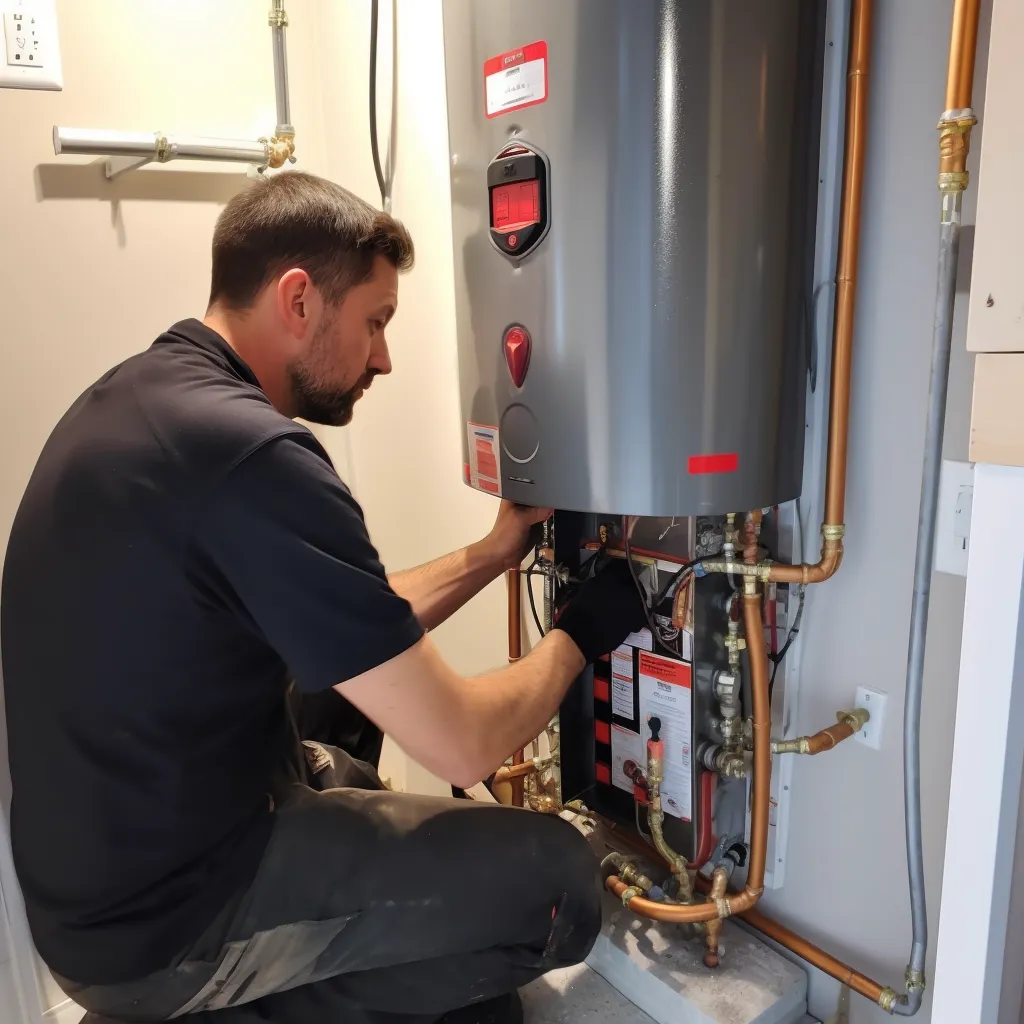
Cost of each type of water heater
Water heater replacement can come with a hefty price tag, as the cost can vary depending on the type of unit you choose.
Although water heaters may have a lower initial cost, they can result in increased energy expenses and a shorter lifespan.
Water heaters with a longer lifespan are beneficial as they require less frequent replacements, resulting in less hassle and expenses in the long run.
With their affordable pricing and the potential for substantial long-term savings, these water heaters are a cost-effective choice.
Water heaters that are considered environmentally friendly have the ability to save you money in the long term. However, it is important to note that they do come with a higher initial cost.
The water heater models on our website are designed with innovative features that allow for remote control and energy-saving capabilities.
Although water heaters with high efficiency are pricier, they offer significant cost savings in the long run.
When deciding between gas and electric water heater models, it is important to take into account the differences in cost and energy efficiency. Gas water heaters generally have lower initial expenses, while electric heaters tend to be more energy-saving.
Direct vent water heaters are the most cost-effective choice, offering affordability without compromising quality. On the other hand, power vent models may come with a slightly higher price tag, but they offer additional features and advantages.
Cost of installation and ongoing maintenance

Tank water heaters:
Water heaters generally require lower installation costs initially, but they may come with higher long-term maintenance expenses.
Tankless water heaters:
While the initial installation costs of water heaters may be higher, they tend to have lower maintenance expenses in the long run. This results in cost savings over time.
Heat pump water heaters:
The installation costs of these water heaters are typically in the mid-range, similar to tankless heaters. However, it is worth noting that they may require slightly higher maintenance expenses.
Solar water heaters:
Water heaters that are connected to a home's plumbing system may have higher installation costs.
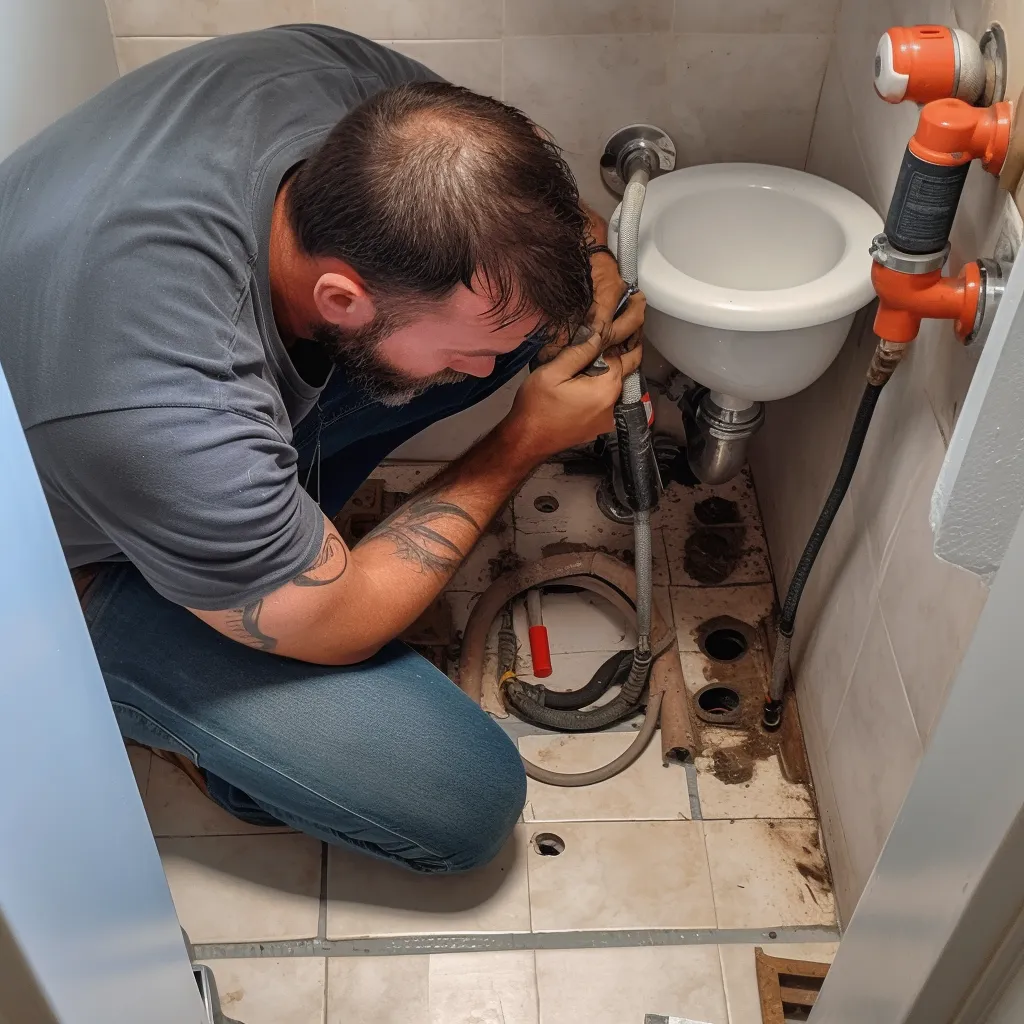
How to get an accurate estimate for the cost of a water heater
When it comes to choosing the right water heater for your home, it's important to consider factors like the size of your household and your hot water usage patterns.
When it comes to choosing the right water heater for your home, it's important to consider factors like the size of your household and your hot water usage patterns.
To determine the installation and upgrade costs for your water heater system, it is recommended to gather quotes from plumbing companies in your local area. By doing so, you can assess the different pricing options and make an informed decision.
When considering purchasing a water heater, it's important to take into account the cost of the unit itself. This includes any warranties or additional features that may be necessary.
Tips to save money on installing a new water heater
When buying a new water heater, it's important to keep these money-saving tips in mind to get the most bang for your buck:
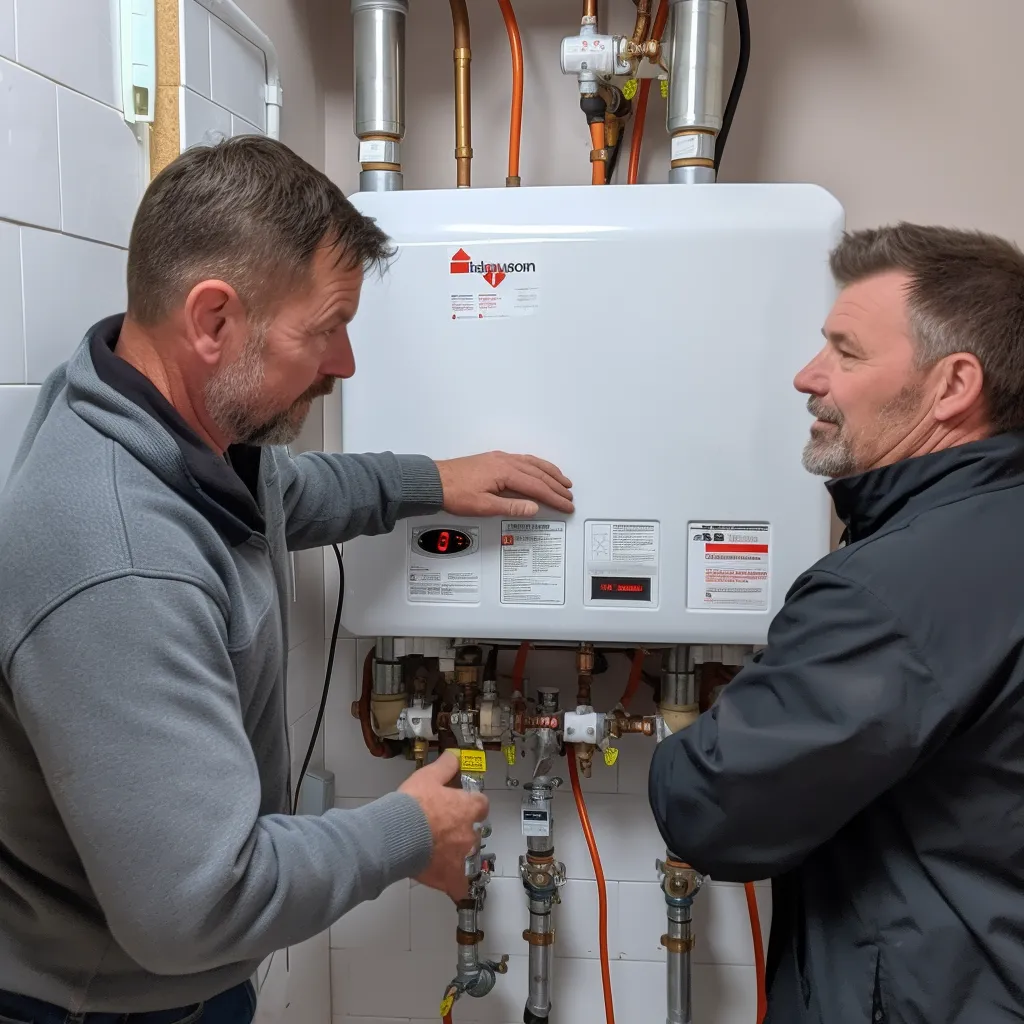
Choose an Energy-Efficient Model: Look for water heaters that have high Energy Factor (EF) ratings. These models are designed to use less energy, which can result in significant savings on your utility bills.
Consider the Fuel Type: Different types of water heaters use different fuels, such as gas, electricity, or solar energy. Consider the availability and cost of these fuels in your area to determine which option will be the most cost-effective for you in the long run.
Insulate Your Water Heater: Adding insulation to your water heater can help to minimize heat loss, which means that the unit won't have to work as hard to maintain the desired water temperature. This can result in lower energy consumption and reduced energy bills.
Opt for a Tankless Water Heater: Tankless water heaters only heat water as it is needed, rather than continuously heating and storing a large amount of water like traditional tank-style models. This can lead to significant energy savings over time.
Consider the Size: Choosing the right size of water heater for your household needs is crucial. An oversized water heater will result in unnecessary energy consumption, while an undersized unit may not be able to meet your hot water demands.
What to do if you need services to replace your water heater
When facing a failing water heater and the need for a replacement, it's wise to enlist the help of a licensed professional. To ensure you choose the right expert for the job, consider these helpful tips:
It is important to ensure that the professional you hire to perform water heater replacements is both licensed and insured.
Inquire about the warranties provided for both the unit itself and the installation work.
If you are curious about how long it will take to replace your water heater and any potential factors that may affect the timeline, feel free to reach out and ask. Our team will be happy to provide you with an estimate and discuss any variables that could impact the process. Get in touch today to get all the information you need!
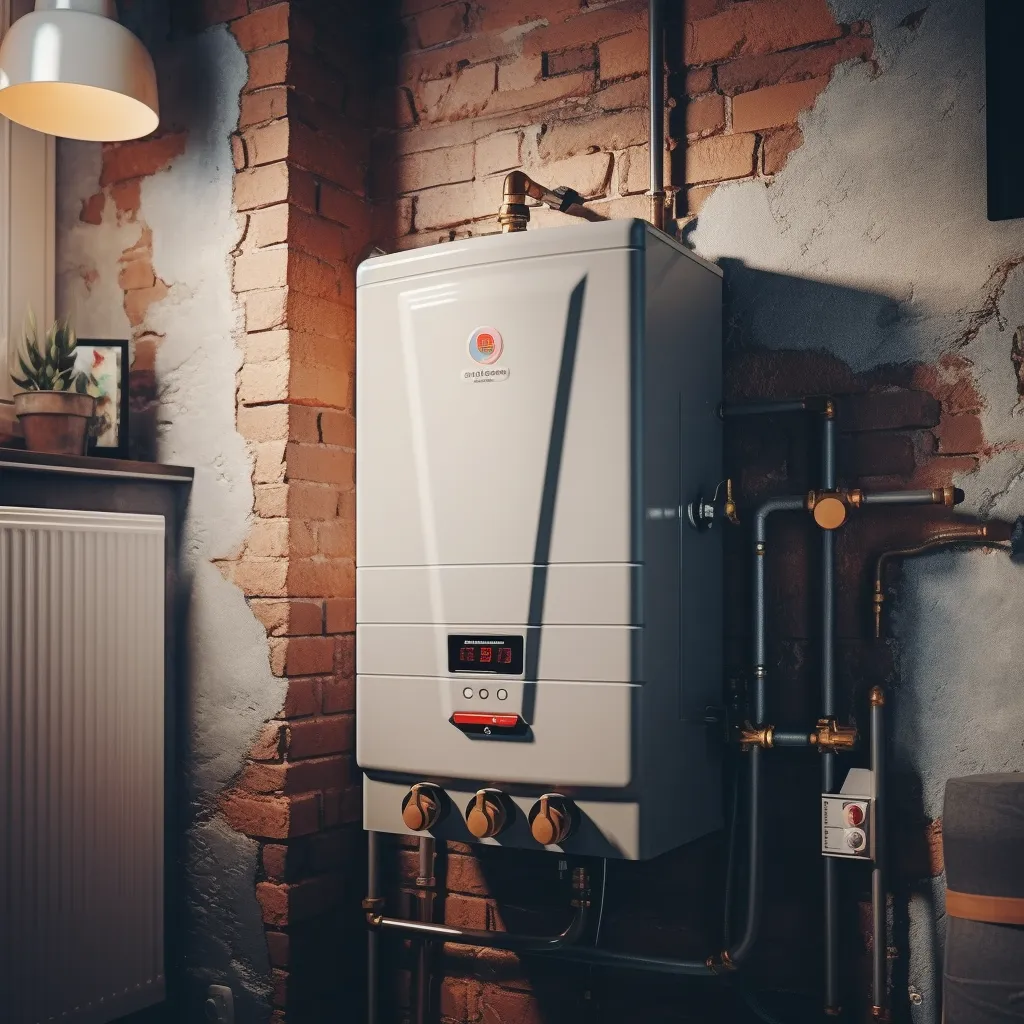
A skilled and dependable technician will have the ability to:
Our company provides a wide range of water heater services to cater to all your needs.
Our team is skilled at evaluating water heaters and determining if they need to be repaired or replaced.
When you choose our team, we make sure to provide you with a comprehensive estimate. This estimate will give you all the details you need, including the cost of labor, materials, and any applicable taxes. It's important to us that you have a clear understanding of the expenses involved in your water heater project.
Our team is here to help you choose the perfect water heater that meets all your needs. Whether you're looking for a compact size, high efficiency, or an affordable price, we'll guide you through the selection process.
Our skilled technicians have the expertise to manage the complete installation process, ensuring a smooth changeover from the removal of the old water heater to the setup of the new one.
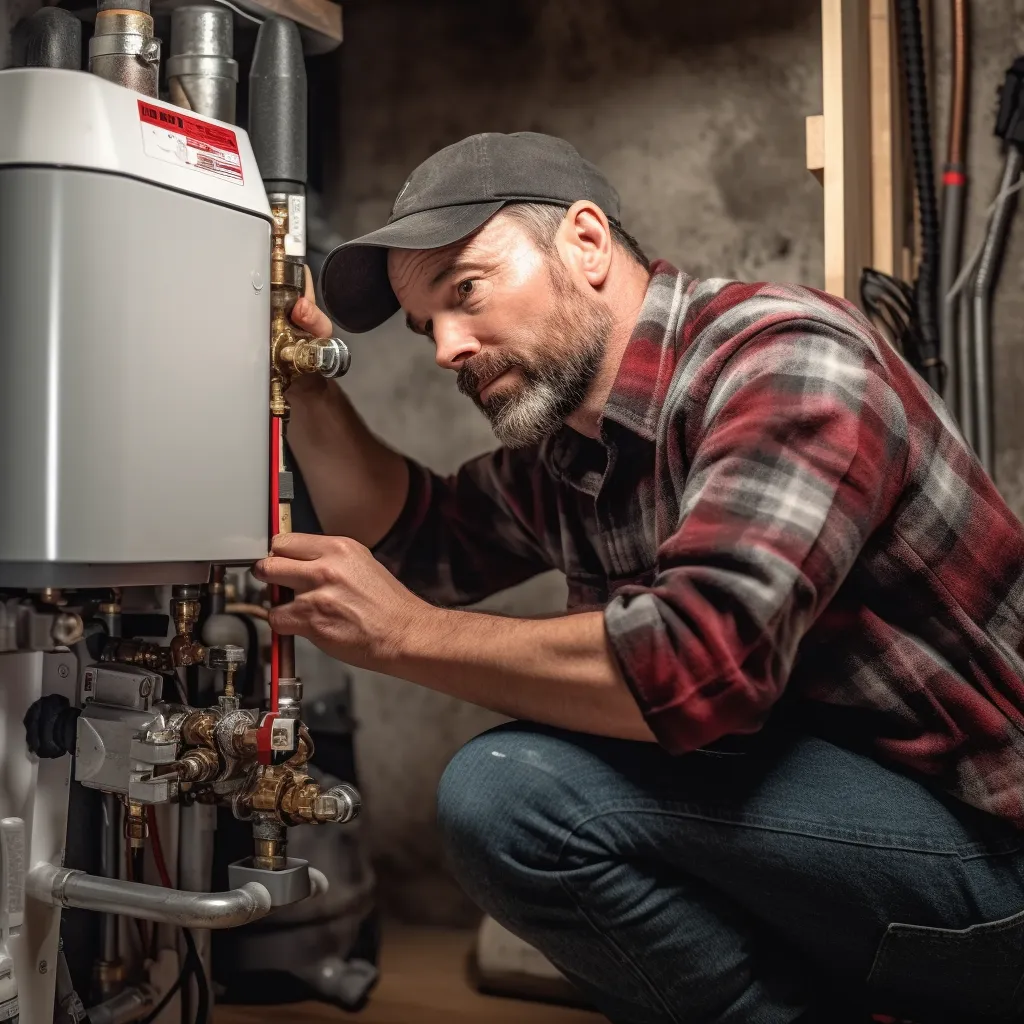

Water heaters don't last forever
Understanding when to replace or maintain your water heater is important. On average, a water heater lasts between 6 to 12 years, but it depends on how much you use it and how efficient it is. When thinking about getting a new one, there are a few things that can affect the cost. This includes the type and size of the water heater, as well as the fees for installation and maintenance. You might also be able to save some money through rebates, incentives, or extended warranties. It's a good idea to do some research and compare different models before making a decision. And if you're unsure, it can be helpful to talk to a licensed professional who can give you advice and potentially save you money in the long run.
Contact Us
